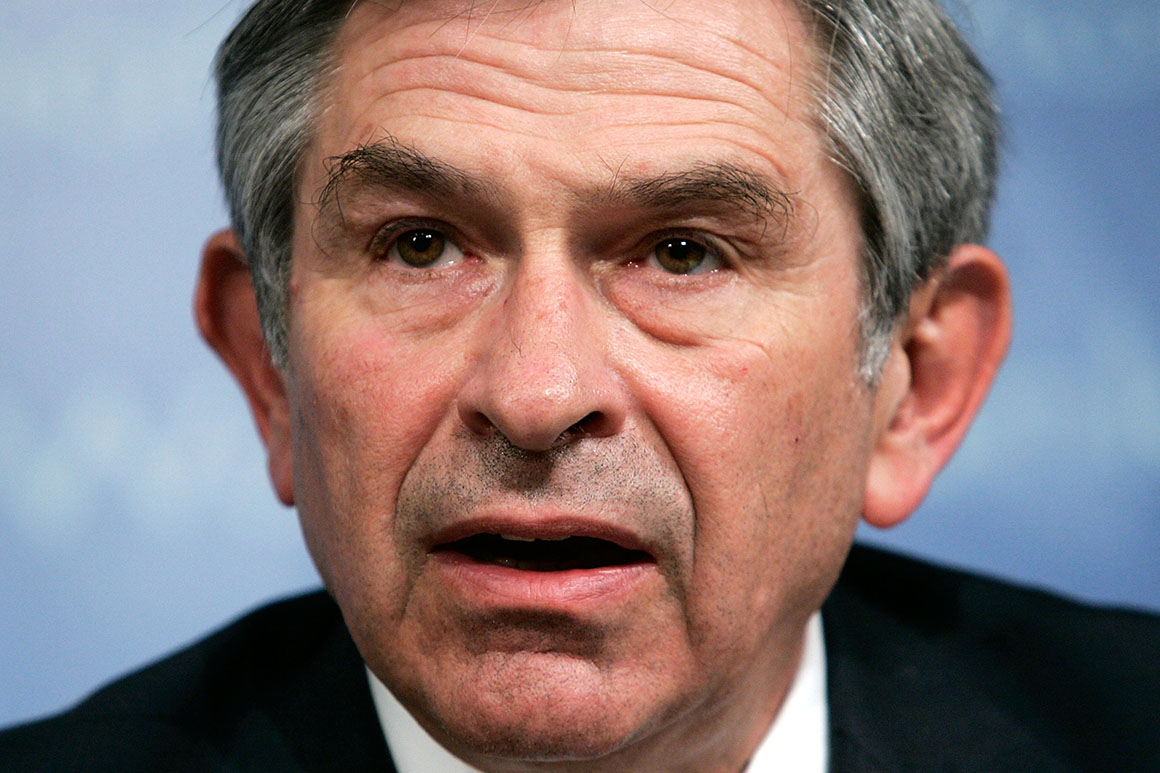
The collective timing of their appearances gave some the chilling feeling of political déjà vu.
“It’s alarming and it’s peculiar,” said Tim Sayle, who heads the International Relations Program at the University of Toronto. “The war in Iraq is connected — if not the direct cause of — crises in the region right now. So the idea of having champions of that war and those that couldn’t find solutions to that war providing insight, there’s a disconnect.”
Throughout the week, when Trump faced criticism — including from some usual boosters like Tucker Carlson — that the president was leaning on suspect intelligence to rationalize dangerous military actions, he had a coterie of Bush aides there to defend him.
When Democrats argued there wasn’t adequate intelligence showing Soleimani had been planning an “imminent” attack on American interests — as Trump claimed — Bush aides went after them.
“I’ve seen too often from the other side the fear of war where they just use the word war indiscriminately, and the only option they have instead is pay the other guy cash,” Bush’s press secretary Ari Fleischer said in a Fox News interview on Thursday. “The Iranian regime remains a threat, and deterrence, strength is the best way to defeat that threat.”
In the pages of the Wall Street Journal, key Bush political strategist Karl Rove mused about whether time would “reward or punish Democrats for being skeptical of Trump’s triumph” during an election year. On Fox News, Rove claimed that the attack “could help with a very small sliver of the electorate that’s up for grabs” and criticized Democrats for their skepticism of the attack.
“Democrats need to show that they stand for the United States,” Rove said. “Instead we had them wringing their hands and looking weak.”
The Trump campaign showed that it also thought the incident would help on the 2020 campaign trail, quickly inserting Soleimani’s death into online ads.
Top Trump aides at times even echoed the Bush playbook of vaguely linking enemies to the terrorists behind the Sept. 11 terrorist attacks.
Just as Bush tied the Iraqi regime to al Qaeda, Vice President Mike Pence on Twitter linked Soleimani to 9/11. Soleimani, Pence tweeted, “assisted in the clandestine travel to Afghanistan of 10 of the 12 terrorists who carried out the September 11 terrorist attacks in the United States.”
And just as Bush faced criticism for his remarks — the independent government commission investigating the attacks concluded there was no “collaborative relationship” between Iraq and al Qaeda — Pence was roundly denounced for his tweet. His office later said the vice president was referencing the 9/11 hijackers who traveled from Saudi Arabia to Afghanistan through Iran.
The similarities were odd to those who see the present tensions as a direct result of the Iraq war.
“I haven’t seen anyone prominent notice that the U.S. invasion of Iraq in 2003 made the current situation inevitable,” said Tom Ricks, a former Washington Post Pentagon reporter and author of “Fiasco: The American Military Adventure in Iraq.” “The American invasion effectively turned Iraq over to Iran. The recent skirmishing does nothing to change that, and in fact may ratify it, if U.S. troops are ordered out of the country.“
Trump and his allies have said the president doesn’t want to go to war, noting the United States is not reeling in the wake of a terrorist attack like the one that struck New York on 9/11. But the Soleimani strike — and resulting discussion about the rationale — has nonetheless reminded many of where the country was 17 years ago.
“The same people cheering on Trump’s reckless, illogical escalation to war with Iran were the ones telling us that democracy would boom across the Middle East as soon as our cake walk invasion of Iraq was done,” Sen. Chris Murphy (D-Conn.) wrote on Twitter. “They were wrong then. They are wrong now.”
Source: politico.com
See more here: news365.stream






